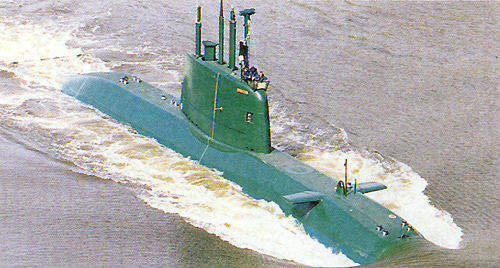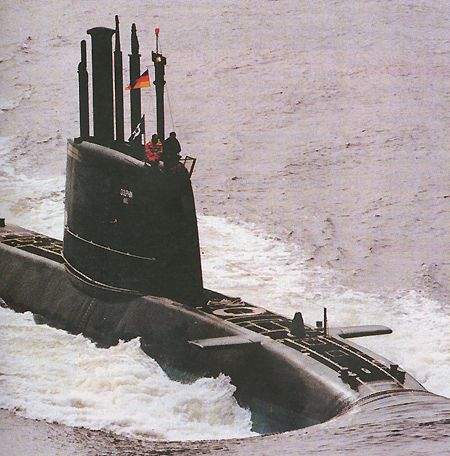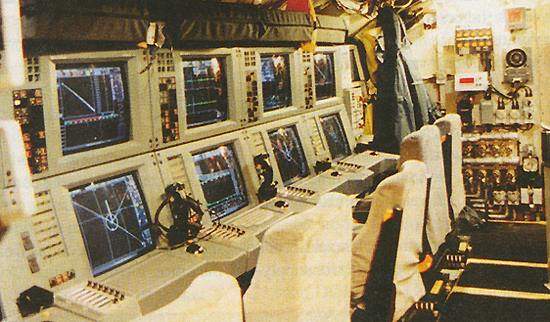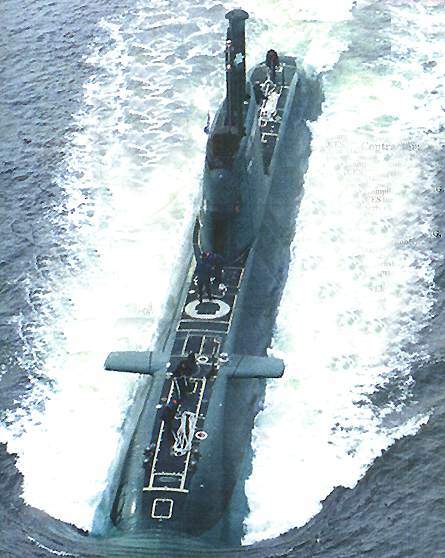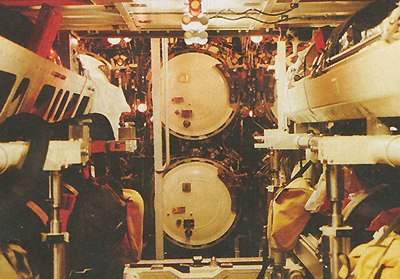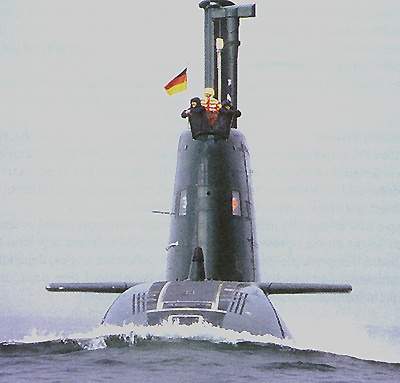Israel’s three Dolphin Class submarines were designed by Ingenieurkontor Lubeck Prof Gabler Nachf GmbH (IKL), a subsidiary of Howaldtswerke-Deutche Werft AG (HDW) based in Lubeck, Germany. A schedule had originally been planned for the construction of the three submarines by an industrial team consisting of HDW and Thyssen Nordseewerke, lead by Litton Ingalls Shipbuilding, but the project was cancelled in 1990.
Following the Gulf crisis in 1990 and 1991, contracts were placed for the construction of the Dolphin and the Leviathan, to proceed with funding support from the German government. Approval for construction of the third submarine was granted in 1994. The hull sections were cut at the HDW shipyard at Kiel, and then moved to Thyssen Nordseewerke shipyards at Emden in Germany for final assembly.
Dolphin Class submarine development
The first-of-class INS (Israeli Naval Ship) Dolphin was commissioned in 1999, INS Leviathan and INS Tekuma in 2000. The mission of the submarines is to carry out interdiction and surveillance operations and special missions. They replaced the Gal Class submarines, which entered service in 1977.
In November 2005, it was announced that Germany would allow the sale of two new Dolphin Class submarines to Israel. In July 2006, Israel placed a contract for two additional Dolphin submarines with an option on a third. The new submarines have air-independent propulsion (AIP) systems, which allow them to stay submerged for a much longer period.
The Dolpin Class submarines are:
- Dolphin – delivered May 1998 – commissioned 1999
- Leviathan – delivered 1999 – commissioned 2000
- Tekumah – delivered 2000 – commissioned 2000
- Tannin – delivered May 2012
- Rahav – delivery expected in 2013
The sixth Dolphin Class submarine was ordered in March 2012 and is yet to be named.
Dophin Class combat systems
The weapon control system is the ISUS 90-1 TCS supplied by STN Atlas Elektronik, which provides automatic sensor management, fire and weapon control, navigation and operation.
The submarine has the capacity to carry up to 16 surface-to-surface missiles or torpedoes. The surface-to-surface missile is the submarine-launched Harpoon, which delivers a 227kg warhead to a range of 130km at high subsonic speed.
The submarine has ten bow torpedo tubes. Four of the tubes have a 650mm diameter that could provide the capability to launch swimmer delivery vehicles (SDVs). With liners the tubes could be used for torpedoes. Six tubes of 533mm diameter for launching DM2A3 torpedoes were supplied by Atlas Elektronik.
The torpedoes use wire-guided active homing to deliver a 260kg warhead at a maximum speed of 35kt to a target range of over 13km. Using passive homing and speed of 22kt, the torpedo has a range up to 28km.
The submarine can also be armed with mines. A wet and dry compartment is installed for deploying underwater swimmers.
Countermeasures
The submarine’s radar warning receiver is the 4CH(V)2 Timnex electronic support measures system developed by Elbit in Haifa. The Timnex receives, identifies, displays and records the radar signal parameters. The system operates over 2GHz to 18GHz frequency bands and the processor operates at rates up to one million pulses a second.
Sensors
The Dolphin Class submarines are equipped with an Elta surface search radar operating at I band. The sonar suite includes the CSU 90 hull-mounted passive and active search and attack radar supplied by Atlas Elektronik. The PRS-3 passive ranging sonar is also supplied by Atlas Elektronik. The flank array sonar providing passive search is the type FAS-3.
The submarine has two periscopes supplied by Kollmorgen.
Propulsion
The submarine is powered by three 16V 396 SE 84 diesel engines developing 3.12MW sustained power and supplied by MTU (Motoren und Turbinen Union) Munchen GmbH, based in Munich. The submarine is equipped with three 750kW alternators, and a 2.85MW sustained power motor supplied by Siemens. The machinery drives a single shaft.
The propulsion system provides a speed of 20kt dived and a snorting speed of 11kt. The range of the submarine is 8,000 miles at a surface speed of 8kt and over 400 miles at an economical speed of 8kt dived. The hull is rated for a diving depth of 350m. The endurance of the submarine is 30 days.

